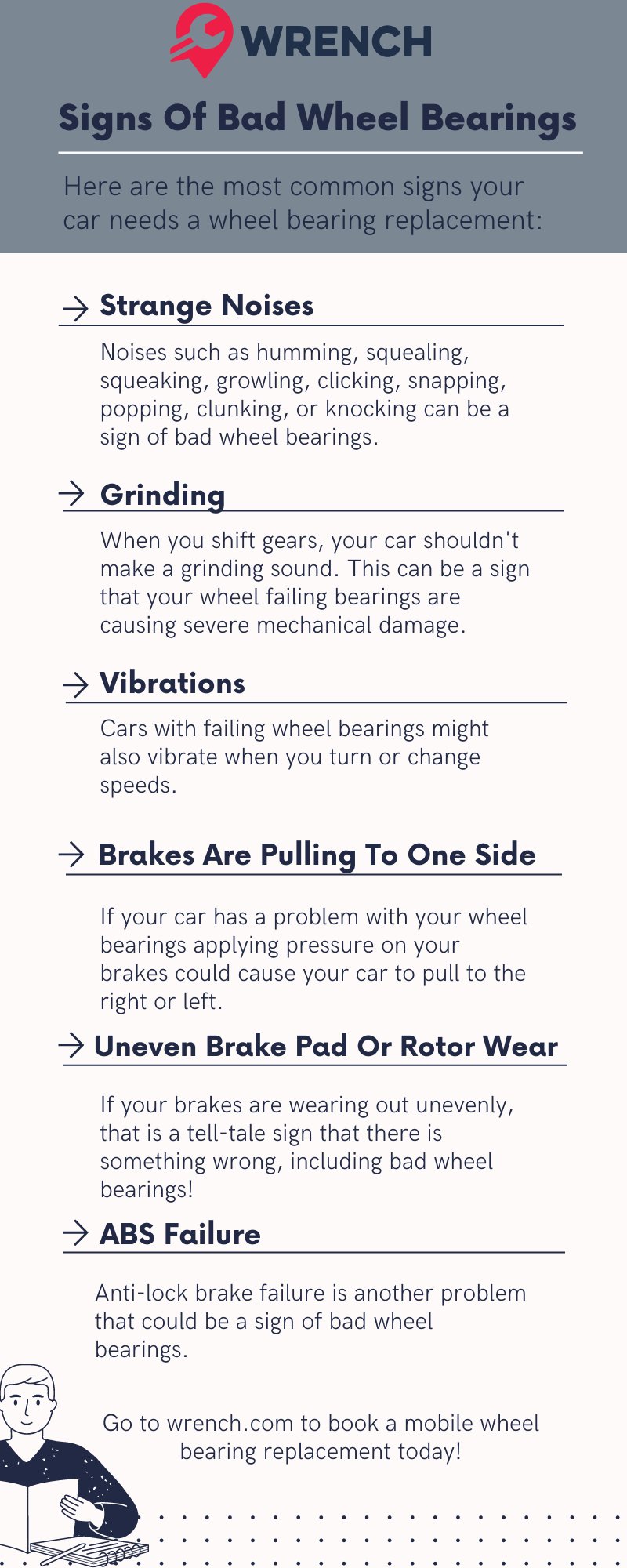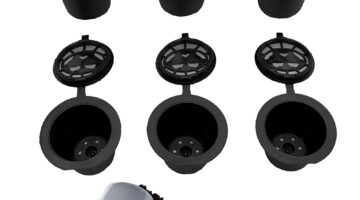
Tips For Identifying A Bad Wheel Bearing: How To Know If You Have A Bad Wheel Bearing
If you hear a constant humming or growling noise coming from your wheels while driving, it could be a sign of a bad wheel bearing. These crucial components support the weight of the vehicle and ensure smooth rotation. Pay attention to any unusual vibrations or steering issues, as they might indicate a failing wheel bearing. In this article, we will explore how to know if you have a bad wheel bearing and the steps to take for a timely diagnosis and repair.
How to Know If You Have a Bad Wheel Bearing
Do you ever hear strange noises coming from your car while driving? Or do you feel an unusual vibration when you’re on the road? These could be signs that you have a bad wheel bearing. Your wheel bearings play a crucial role in the smooth operation of your vehicle, so it’s important to know when they need attention. In this article, we will explore the various signs that indicate a bad wheel bearing and what you can do about it.
What Is a Wheel Bearing?
Before we dive into how to identify a bad wheel bearing, let’s first understand what a wheel bearing is. A wheel bearing is a set of steel balls enclosed by a metal ring. Its main function is to enable the wheel to spin freely with minimal friction. Wheel bearings are found in each wheel hub assembly of a vehicle and are crucial for the overall performance and safety of the car.
Signs of a Bad Wheel Bearing
There are several telltale signs that can indicate a problem with your wheel bearing. Here are some common symptoms to look out for:
1. Unusual Noises
If you hear a grinding, clicking, or rumbling noise coming from one of your wheels, it could be a sign of a bad wheel bearing. These noises typically get louder as you accelerate or make turns. Pay close attention to any unusual sounds, as they can indicate a serious issue with your wheel bearing.
2. Vibration in the Steering Wheel
Another sign of a bad wheel bearing is a noticeable vibration in the steering wheel while driving. This vibration may feel like a wobble or shake, especially at higher speeds. If you experience this, it’s best to have your wheel bearings checked by a professional mechanic.
3. Uneven Tire Wear
Bad wheel bearings can cause uneven tire wear, leading to bald spots or worn patches on your tires. If you notice that your tires are wearing out unevenly, it could be due to a faulty wheel bearing causing misalignment in the wheels.
4. Steering Wheel Misalignment
A bad wheel bearing can also result in steering wheel misalignment. If you find it hard to keep your car straight while driving or notice the steering wheel pulling to one side, it may indicate a problem with the wheel bearings.
5. Wheel Movement and Play
If you jack up your car and notice excessive wheel movement or play when you try to wiggle the wheel back and forth, it could be a sign of a loose or damaged wheel bearing. This can affect the stability and safety of your vehicle.
What to Do If You Suspect a Bad Wheel Bearing
If you suspect that you have a bad wheel bearing based on the signs mentioned above, it’s essential to take action promptly. Ignoring a faulty wheel bearing can lead to more significant problems and compromise the safety of your vehicle. Here are steps you can take:
1. Consult a Professional Mechanic
The first and most crucial step is to consult a professional mechanic to diagnose the issue. A qualified mechanic will have the expertise and tools to inspect your wheel bearings and determine if they need to be replaced.
2. Replace the Wheel Bearings
If your mechanic confirms that you have a bad wheel bearing, it’s important to follow their recommendation to replace the faulty part. Wheel bearing replacement is a complex process and requires specialized tools, so it’s best left to professionals.
3. Regular Maintenance
To prevent future wheel bearing issues, it’s essential to keep up with regular maintenance of your vehicle. Follow the manufacturer’s recommended service schedule and have your wheel bearings inspected during routine check-ups.
In conclusion, knowing how to identify a bad wheel bearing is crucial for maintaining the safety and performance of your vehicle. By paying attention to the signs such as unusual noises, steering wheel vibrations, uneven tire wear, steering misalignment, and wheel movement, you can address wheel bearing issues promptly and avoid potential hazards on the road. Remember to consult a professional mechanic for accurate diagnosis and timely repairs to keep your car running smoothly.
Stay vigilant, listen to your car, and take action when needed to ensure your wheel bearings are in good condition and your journeys are safe and enjoyable!
How to 100% diagnose a bad wheel bearing.
Frequently Asked Questions
How can I tell if my car has a bad wheel bearing?
To determine if you have a bad wheel bearing, you may notice a few common signs. One of the most typical signs is a loud, constant noise coming from the affected wheel that increases with vehicle speed. You may also feel vibrations or wobbling in the steering wheel or vehicle as you drive. Another indicator is uneven tire wear, which can result from the wheel bearing not allowing the wheel to sit properly.
Why is it important to address a bad wheel bearing promptly?
It is crucial to address a bad wheel bearing promptly because ignoring the issue can lead to serious safety concerns and further damage to your vehicle. A failed wheel bearing can affect your ability to control the car, potentially resulting in accidents. Additionally, a bad wheel bearing can cause damage to other components of the wheel assembly, leading to more extensive and costly repairs.
Can a bad wheel bearing cause a steering wheel to feel loose?
Yes, a bad wheel bearing can cause the steering wheel to feel loose or wobbly while driving. When a wheel bearing is worn out or damaged, it can create excess play in the wheel, causing the steering to feel less responsive and shaky. If you notice your steering wheel feeling loose, it is essential to have your wheel bearings inspected by a professional mechanic.
Final Thoughts
Feeling vibrations, hearing unusual noises, and experiencing steering wheel looseness are signs that you may have a bad wheel bearing. Don’t ignore these warning signals – addressing the issue promptly can prevent further damage and ensure your safety on the road. Regular maintenance checks and listening to your vehicle can help you quickly identify if you have a bad wheel bearing. Remember, recognizing the signs of a bad wheel bearing early on can save you from costly repairs down the road.




